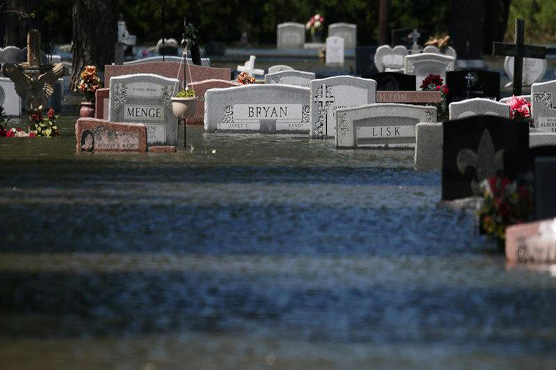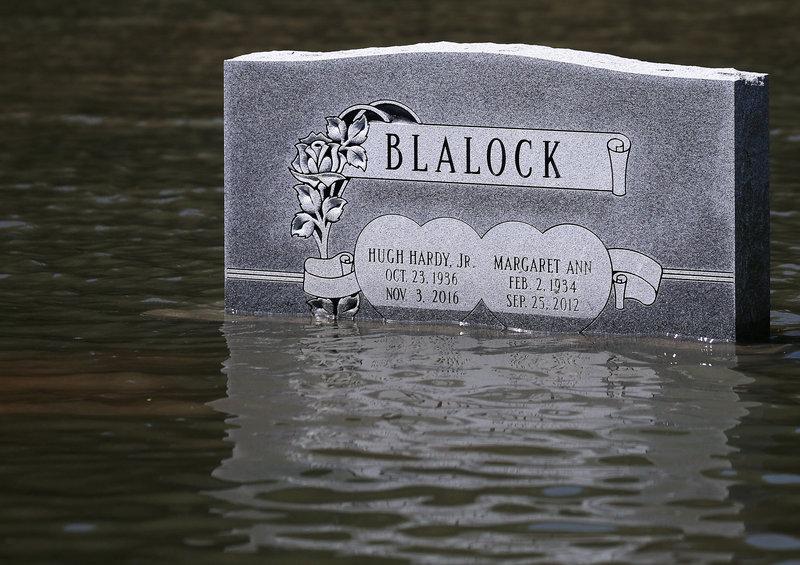Looming Hurricane Irma threatens to disturb Florida's final resting places

As Hurricane Harvey proved in Texas and Louisiana last week, powerful storms like Irma can unearth caskets or pop them out of burial vaults, disturbing what were supposed to be final resting places. Photo: Reuters
(Reuters) - Like most Floridians, the state’s cemetery directors scrambled over the last few days to secure their properties against the fast-approaching fury of Hurricane Irma, but none of those careful preparations could ease their biggest concern.
As Hurricane Harvey proved in Texas and Louisiana last week, powerful storms like Irma can unearth caskets or pop them out of burial vaults, disturbing what were supposed to be final resting places.
Once uprooted, caskets can become projectiles in the wind, said Mike Trinkley, director of the Chicora Foundation, a non-profit heritage organization whose mission includes cemetery preservation.
“Coffins can be found in trees, in rivers, and getting caskets back to their graves can be very problematic if there isn’t a way of identifying them,” he said.
Serial numbers on coffins, if undamaged, are often used to help with recoveries, he said.
As one of the most powerful Atlantic storms in a century bore down on Florida, Governor Rick Scott repeatedly warned residents to get out if they were in evacuation zones.
But cemeteries were mostly powerless in minimizing the potential for the interred to rise up and float or be blown away. Evacuation is not an option.
“There’s not a lot that we can do to prepare for these things,” said John McNamara, spokesman for StoneMor Partners, a cemetery operator with some sites in northern Florida. “There’s nothing to evacuate. We can’t move. So we do our best to remediate damage as it occurs.”

A flooded graveyard is pictured in Texas after Hurricane Harvey. Photo: Reuters
While Florida cemetery operators say loose coffins have been a rarity during the numerous storms that have hit the peninsula, they have surfaced in other states during severe hurricanes.
When Hurricane Hugo struck the Carolinas in 1989, sealed caskets and vaults tended to float, while trees uprooted in heavy wind were known to push coffins to the surface.
When coffins are disinterred, the U.S. Department of Health and Human Services’ National Disaster Medical System can help by providing expertise to local medical examiners overwhelmed by a storm such as Irma.
The department’s so-called Disaster Mortuary Operational Response Teams already had to return displaced coffins after Harvey, said Health and Human Services spokeswoman Gretchen Michael.
At the Hollywood Community Cemetery in Orange, Texas, floodwaters generated by Harvey caused three coffins to emerge out of concrete vaults.
One of them contained the remains of Dewey Mosby, who died in 2003 at the age of 82.
“He won’t stay put,” said Ron Kendall, 63, who helps maintain the cemetery and said he knew Mosby well in life.
Kendall had return Mosby’s coffin back to its resting place after Hurricane Ike in 2008 and again during flooding in 2016.
“Everybody knows where Mr. Mosby goes now,” Kendall said, “because he always comes up.”


